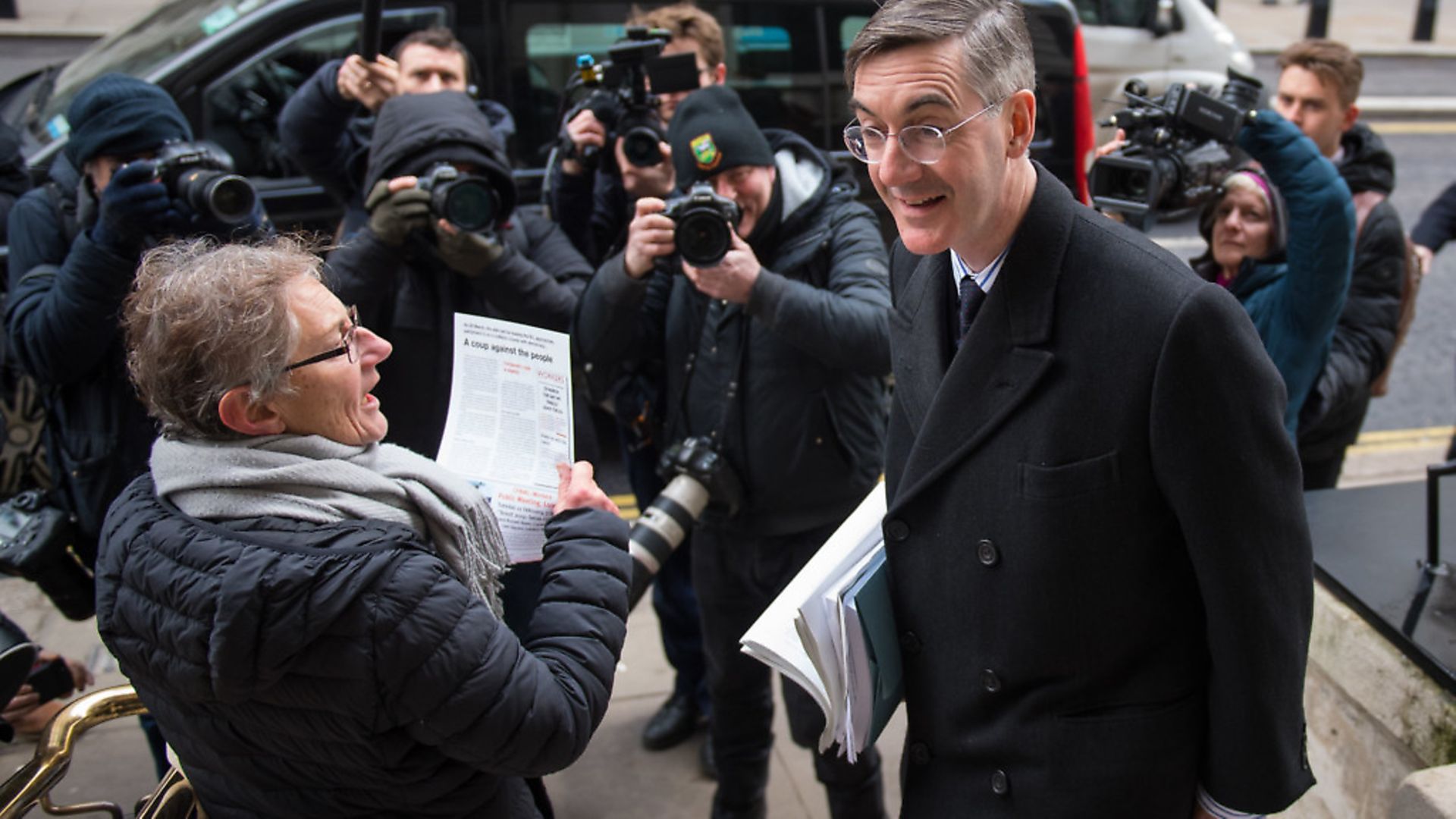
It would be better to ‘consult a newspaper horoscope than treasury forecasts’, a Tory Brexiteer has suggested, as the SNP claimed the UK government is ‘refusing to admit the damage’ that Theresa May’s Brexit deal will do.
The comment from Jacob Rees-Mogg, chairman of the European Research Group, came as SNP Westminster leader Ian Blackford claimed the government has done ‘no analysis’ on the economic impact of its Brexit deal, adding: ‘That is once again this Conservative government treating this House, treating the United Kingdom with contempt and it’s a disgrace that the government has continued to duck and dive its responsibilities.’
Blackford raised warnings from economists as he asked an urgent question in the Commons.
Treasury minister Mel Stride, replying for the government, said ‘very robust’ information has been provided on potential Brexit scenarios, adding: ‘He levels the charge we are treating the United Kingdom in some way with contempt – that is certainly not the case.’
Stride also claimed the analysis shows that ‘under every single scenario’ it is ‘better to have this deal than no deal or any of the alternatives’.
Rees-Mogg said: ‘As the Treasury’s forecasts before the referendum were woefully inaccurate and the OBR was set up specifically to stop politicised reports coming out, would it not be better to consult a newspaper horoscope than Treasury forecasts?’
Tory former chancellor Ken Clarke said it was ‘perfectly obvious’ to all those involved in the negotiations that, if Britain were to leave the EU with no deal, it would be ‘disastrous’ for the British economy in the medium to long term and ‘extremely damaging’ to the economies of many EU countries.
He said: ‘It is rather silly to think that it’s useful in these negotiations to take up the simplistic view that we have to pretend that we’re threatening to leave with no deal in order to improve our bargaining position.
‘Will he reassure me that the negotiations are proceeding on the basis that both sides know they don’t want no-deal, and they are therefore trying to limit the damaging consequences of risking that?’
Stride replied: ‘He is entirely right that a no-deal would be a very unsatisfactory outcome but of course what the House will appreciate is that the only way of avoiding a no-deal is to secure a deal.’
Shadow economic secretary to the Treasury Jonathan Reynolds said: ‘What’s been clear though from the wide range of independent analysis that we’ve received is that the government’s Brexit deal is not good news for our economy.’
Tory Brexiteer Sir John Redwood called on the Treasury to issue a clarification on its economic forecast, looking at what would happen if the UK left the EU under the ‘managed WTO when we spend the £39 billion plus of the Withdrawal Agreement on boosting public services and boosting our economy at home, we would bound to be better off, isn’t that true?’
Labour chairman of the Brexit Committee Hilary Benn said 37 days from Brexit the Commons was ‘actually discussing which of several options, all of them economically damaging, we should choose for the future of our country’s economy’.
He asked what possible justification there was for the government planning for a no-deal given that ‘its own economic assessment shows it would have the most damaging impact on the British economy. How could such an act of economic self-harm ever be justified?’
Warning: Illegal string offset 'link_id' in /mnt/storage/stage/www/wp-includes/bookmark.php on line 357
Notice: Trying to get property 'link_id' of non-object in /mnt/storage/stage/www/wp-includes/bookmark.php on line 37






